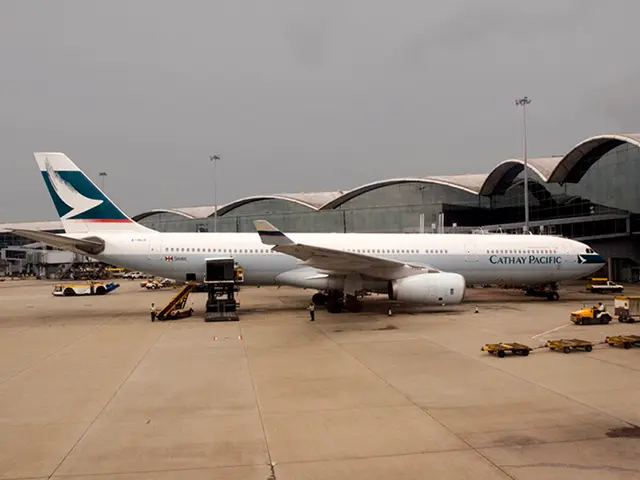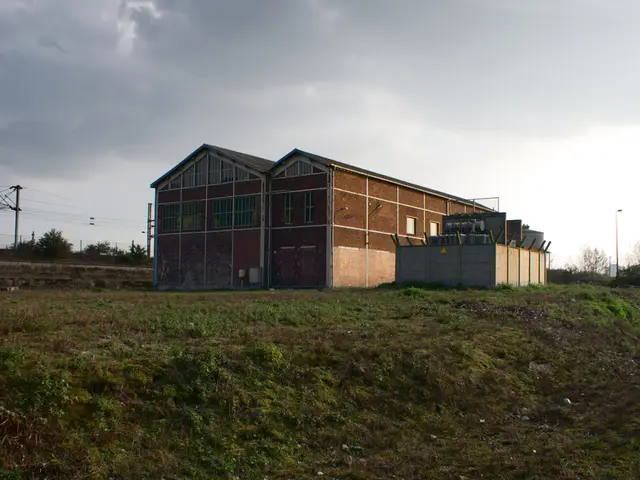A Spat over Border Policies: Tusk Won't Dance with Merz's Migration Tune
Merz's migration route does not include Tusk.
Social Media Share
Chancellor Friedrich Merz starts his tenure with a visit to Paris and Warsaw, but he ain't grinning as he steps off the plane. Polish Prime Minister Donald Tusk isn't exactly rolling out the red carpet. Tensions are running high over the new black-red coalition's migration policies.
Tusk didn't mince words when he lashed out at the planned migration policy of Germany's new government, "Germany will let whoever it wants into its territory. Poland, on the other hand, will only accept those we deem fit." Tusk made these remarks during Merz's inaugural visit to Warsaw, emphasizing that neither Germany nor anyone else will push migrants towards Poland.
Policy Clashes with a Twist of Politics
Tusk's pique stems from the "Dublin center" near Poland's border with Germany. This center is set to facilitate the return of asylum seekers to other EU countries, but Poland isn't happy about it. The center would likely manage the transfer of asylum seekers, particularly to Poland.
Tusk also expressed his disapproval of Merz's proposal to toughen border controls, saying, "If someone introduces controls at the Polish border, Poland will do the same. It doesn't make sense in the long run."
A Journey for Border Security
Tusk pointed out the arduous task Poland has been tasked with, guarding the EU's external border. The government in Warsaw accuses Belarus's ruler Alexander Lukashenko of pushing migrants from crisis areas towards the EU's eastern border deliberately. Tusk seeks cooperation from Germany in securing the border.
Merz, however, promised Poland's support in protecting the EU’s external border. He believes it is their duty to bolster the European external borders and desires to forge positive solutions. At the same time, Merz advocates a joint European approach to combat illegal migration.
Stricter Border Policies at Play
Under the new German government, migration policies are undergoing a shift. Tougher border controls, strict asylum denials, and refusal of entry to undocumented migrants are the order of the day[2][4]. This is in response to domestic political pressures, including appeasing the far-right vote by addressing concerns over irregular migration[3][4].
While Germany aims to protect its external borders, it is crucial to maintain the principles of the Schengen Agreement, which guarantee free movement within the EU[5].
Source: ntv.de, jog/dpa
- Poland
- Germany
- Friedrich Merz
- Donald Tusk
- Migration
- Asylum
- Irregular Migration
- EU
Enrichment Data:
- Under pressure from the domestic political environment, the new German government is enforcing stricter border control policies, which include denying entry to undocumented migrants, even asylum seekers. Germany intends to limit irregular migration to counter gains from far-right political parties[3][4].
- These border control policies have elicited criticism from Poland, which fears that reciprocal restrictions may ensue[3]. Poland views Germany's tough stance as a potential threat to further escalate tensions and strain bilateral cooperation[2].
- To ensure effective border management, Germany will coordinate with neighboring countries on returning asylum seekers[2]. However, selective acceptance practices by countries like Poland could conflict with EU laws guaranteeing asylum rights[2].
This data provides additional context to illustrate the potential conflict between border control policies and EU laws, as well as the political implications behind the dispute.
- The Polish Prime Minister, Donald Tusk, has expressed his disapproval of Germany's employment policy, particularly its proposed migration policy under Chancellor Friedrich Merz, stating that Germany will accept whomever it chooses into its territory, while Poland will only accept those deemed fit.
- Tensions over employment policies, specifically migration policies, are running high between Germany and Poland, with Tusk criticizing Merz's plan to toughen border controls, suggesting that if Poland introduces controls at its border, it will do the same in response.
- The issue of migration policies is not confined to the EU; it is also a concern in Poland-Germany relations, with Tusk vocalizing his concern about the proposed Dublin center near Poland's border with Germany, which is designed to facilitate the return of asylum seekers to other EU countries, particularly to Poland.
- In response to domestic political pressures, the new German government is implementing stricter employment policies, including tougher border controls, strict asylum denials, and refusal of entry to undocumented migrants, all aimed at addressing concerns over irregular migration and appeasing far-right votes.
- The Polish government, under Prime Minister Donald Tusk, accuses Belarus's ruler Alexander Lukashenko of deliberately pushing migrants from crisis areas towards the EU's eastern border, and seeks cooperation from Germany in securing the border.








